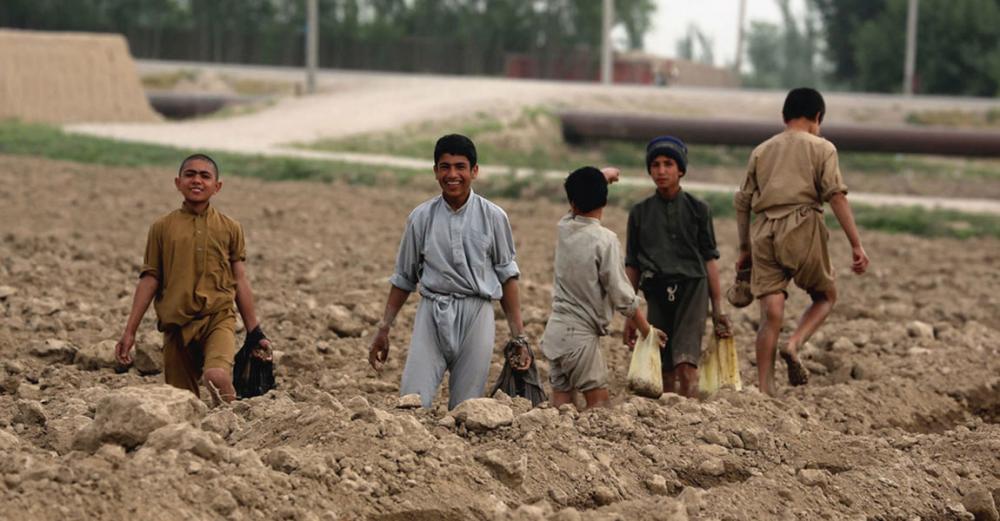Just Earth News | @justearthnews | 26 Jun 2020, 08:35 am Print

New York/IBNS: The COVID-19 pandemic is not just a health emergency, but a multi-dimensional crisis for Afghanistan, dealing its people a painful blow just as Kabul and the Taliban prepare for peace talks in Qatar, the top UN official in the country says.
Deborah Lyons, Head of the United Nations Assistance Mission in Afghanistan (UNAMA), told the Security Council on Thursday that the novel coronavirus outbreak is casting “a huge shadow” over Afghan daily life.
Under the leadership of the Afghan government, the United Nations is supporting a coordinated response that includes setting up a nationwide network of laboratories and the provision of personal protective equipment, she said.
Women and girls bear the brunt - again
Sadly, women and girls are being disproportionately impacted by the crisis, with lockdowns limiting their mobility and exposing them to greater risk of domestic violence, said Ms. Lyons, addressing the Council for the first time since she took up her post in April.
“The socio-economic impact of weeks of lockdown, reduced economic activity and loss of remittances will be deep and long-lasting”, she said, presenting the Secretary-General’s latest report on Afghanistan.
Given the challenge of getting more international financial support at a time when the pandemic is pummelling the global economy, she said that UNAMA is working closely with the Afghan and Finnish governments to prepare for a major donors’ pledging conference – the first since 2018 - due to be held later this year.
“This conference and the peace talks (between President Ashraf Ghani’s government and the Taliban) should be mutually reinforcing”, she said, calling for “robust engagement” by all stakeholders.
Big strides, now at stake
Ms. Lyons, who was Canada’s ambassador to Kabul from 2013 to 2016, said that Afghanistan has made big strides in recent years, with improved living conditions and a free and vibrant media sector. She added that she is also deeply impressed by the strength and courage of Afghan youth.
But such progress remains fragile, she emphasized, with too many Afghans facing daily struggles to survive, and the 29 February peace deal between the United States and the Taliban providing only brief respites from all-too-familiar carnage.
Particularly egregious have been attacks on healthcare facilities in the midst of the COVID-19 pandemic, with the 12 May attack on a maternity ward in Kabul – leaving at least 24 dead, according to news reports - setting a new low, she said.
Attacks continue, despite peace efforts
Over the weekend, UNAMA reported 15 attacks on healthcare sites in the first two months of the pandemic. Eight of the attacks were attributed to the Taliban and three to Afghan government forces.
On the political front, Ms. Lyons welcomed the power-sharing agreement struck on 17 May by President Ashraf Ghani and his main rival Abdullah Abdullah, adding that she expects a cabinet and inclusive peace structures to be announced within days.
She expressed cautious optimism that talks between the Government and the Taliban will start in Doha in July, although they are likely to be long and complex.
But the peace process risks going off the rails due to spiralling levels of violence that followed a three-day Eid ceasefire. “It is incumbent on all countries that support peace to use their influence and call for a reduction of violence,” she said.
UNODC chief briefs Council on Afghanistan
The head of the UN Office on Drugs and Crime, Ghada Fathi Waly, also briefed Council members on Thursday, updating them on the nexus between the opium trade, political instability and terrorism, highlighting increasing concerns over methamphetamine production.
- Global obesity crisis deepens: One in five kids now overweight, study highlights
- Alarming projection: Global breast cancer cases could cross 3.5 million by 2050, shows study
- Exam stress to emotional distress: Study reveals the dark side of academic pressure
- Vegetarian diet linked to lower risk of five major cancers, study finds
- Ukraine’s health system under fire: Attacks spike 20% in 2025, WHO warns





-1763561110.jpg)
